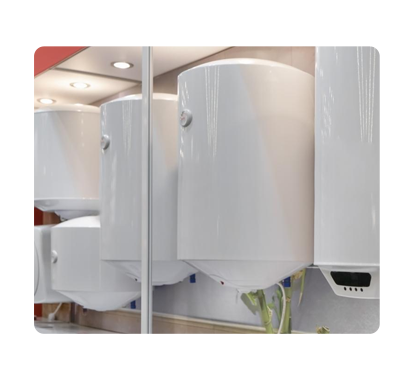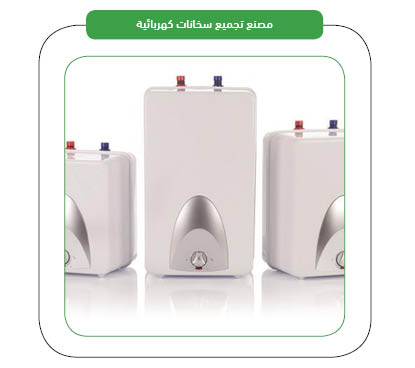The project is to establish a factory for manufacturing electric heaters, where the factory produces electric water heaters in various colors and different models. The factory is distinguished by producing high-quality electric heaters characterized by the thickness of the inner cylinder metal and its ability to withstand high pressure. The cylinder is also coated with enamel (porcelain) that prevents rust, which keeps the water inside the heater pure, in addition to containing a magnesium column to provide more protection. As for insulation, polyurethane (injected foam) is used, which works to reduce electricity consumption, in addition to the ease of controlling its temperature. The heater contains two upper and lower safety valves. The sectors targeted by the project are: (distributors and agents of companies – electronics trade showrooms – electrical appliances stores), in order to benefit from the growth in demand for these products. The feasibility study of an electric heater assembly plant reveals that the project is one of the investment opportunities with appropriate costs that achieve high economic returns.

mashroo3k Feasibility Studies & Business Plans Company is preparing a feasibility study for an electric water heater assembly plant, covering technical, marketing, and financial aspects. The company analyzes the project’s field, core concept, components, and nature while studying the products and their specifications. Additionally, it examines competitors, the market gap, and the size of the target market.
These analyses confirm a strong market demand for the project’s products—assembled electric water heaters—across various target markets. This is essential to bridging the gap between supply and the growing demand for these products.
The factory aims to create job opportunities, enhance workers’ economic and social well-being, and deliver high-quality electric water heaters at competitive prices, ensuring the project secures its targeted market share. Furthermore, it seeks to meet the rising demand for electric water heaters by utilizing the latest production and manufacturing techniques and relying on skilled experts in the field.
The project is designed to provide distinctive products tailored for key market segments, including distributors, corporate agents, electronics trade showrooms, and electrical appliance stores. By capitalizing on the growing demand for these products, the project aims to capture a significant portion of the market gap.



Executive Summary
Study of project services/products
Market Size Study
Risk study
Technical study
Financial study
Organizational and administrative study

Saudi Arabia has paved the way for development with its ambitious Vision 2030, which aims to diversify the economy, advance non-oil sectors, and increase the private sector’s contribution to GDP. This goal can only be achieved through the growth of industry and mining, as they are key drivers of major economies. The Kingdom has committed to raising their share in its GDP by approximately 15%.
When discussing industry in Saudi Arabia, it is essential to note that it is not a recent development but has deep roots dating back to the discovery of oil in the late 1930s. Over the decades, the Kingdom has spared no effort in developing its industrial sector. It established the Saudi Industrial Development Fund (1974), the Royal Commission for Jubail and Yanbu (1975), and later, the Saudi Basic Industries Corporation (SABIC) in 1976. The significant roles and initiatives undertaken by these institutions to enhance the sector’s performance and operational mechanisms are undeniable.
As a result of years of dedicated efforts, the number of factories in the Kingdom has now exceeded 10,000. At mashroo3k, we firmly believe in the importance of the industrial sector and its role in driving economic growth. Therefore, we will present the key indicators of the sector to provide potential investors with a clear and informed perspective.
